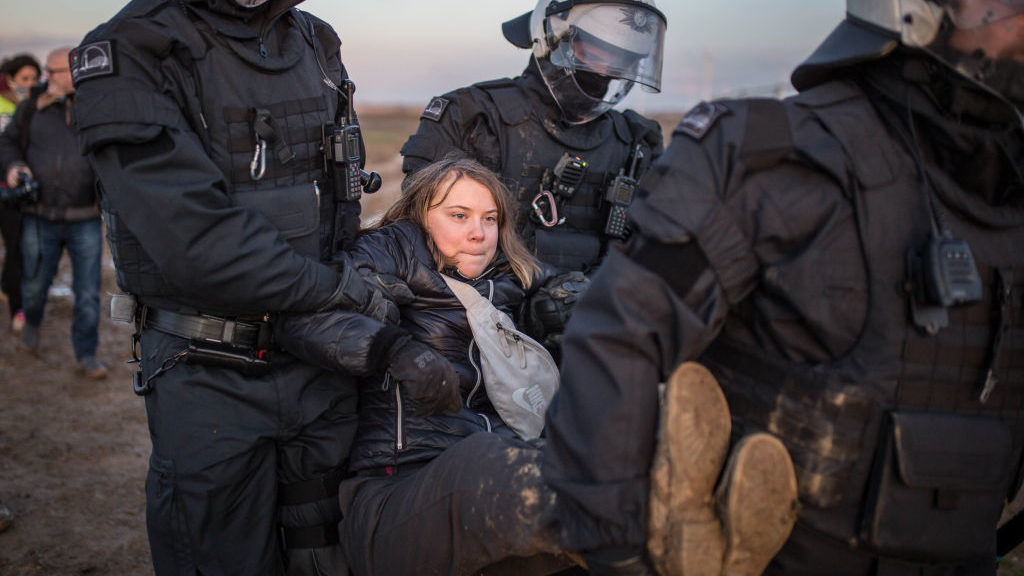When Greta Thunberg first erupted into the public arena, she was a poster child for activism. As a secondary school teacher, we taught lessons inspired by her message and fielded questions from a new generation of children who started to wake up to the precarity of the world they were going to inherit. The striking image of a solitary child sitting in front of a placard for months on end, sacrificing her own education in order to make a change in the world was one that everyone seemed moved by.
Of course, Thunberg always faced the kind of scrutiny that anyone does in the spotlight, with the tabloid media mocking her autism spectrum disorder or belittling the impact one teenage girl can really have, but she seemed to have ignited something around the world, which came to be termed the “Greta effect”. Thunberg became TIME’s youngest-ever person of the year, received multiple nominations for the Nobel Peace Prize and gave her famous “how dare you” speech at the UN in which she accused global leaders of stealing her childhood. It seemed that, like Malala Yousafzai, she was something of a child prodigy set to change the world before she’d even hit the cusp of adulthood.
Recently, though, it appears that Thunberg has not just dwindled into obscurity in the public eye but that she has been deliberately outcast by a media, society and government that once valorised her initial activism. In fact, you’d be forgiven for thinking that Thunberg had retired from activism altogether but just this month, she was cleared of a public order offence which she had been charged with for protesting outside a London hotel hosting an energy summit. The judge threw out the case after the Crown failed to provide enough evidence that Thunberg had broken any laws.
So what’s behind this rise and fall of Greta Thunberg? Why is it that this case got baffling little coverage by a media that followed her childhood climate strike for months on end? The answer, I think, lies in what kind of activism the state, society and the press finds palatable and what it finds a genuine threat to the very status quo it relies upon to exist.
When Greta Thunberg first gained traction, she was a slightly quirky European child from a middle class family. She was blonde, she was small. Her parents, who proudly supported their daughter’s political stance, were highly educated and eloquent. She seemed like the product of good parenting, western liberal values done right. The object of her political rage was suitably neutral – who can say that they agree the animals should go extinct and the world should rise to uninhabitable temperatures? Looking back, it’s as though world leaders viewed Thunberg as more a novelty than anything else, marvelling at her teenage conviction without ever needing to truly heed its message. She was, after all, a child. Perhaps they hoped she would grow out of this particular phase. That adulthood and the capitalist system would do its job and like everyone else she’d get so caught up in the cycle of paying bills and the morning commute that she’d have no time to care about making a change anymore – and all the while her politics would drift to the right like any good citizen. In fact, the system’s temporary embrace of Thunberg seemed predicated on the belief that she would simply get over it when she got older.
But that’s not what happened. Thunberg did grow up and so did her politics. And nowadays, Thunberg is not a small solitary child behind a placard but an angry young woman, often wearing a Keffiyeh (a Palestinian scarf and a symbol of resistance) and sometimes using social disorder as a tool for her activism. As Thunberg has entered adulthood, her environmental politics has broadened to incorporate the struggles that are undeniably entwined with climate justice – from the scourge of capitalism to refugee rights, the fight against the far right and the rights of marginalised communities.










